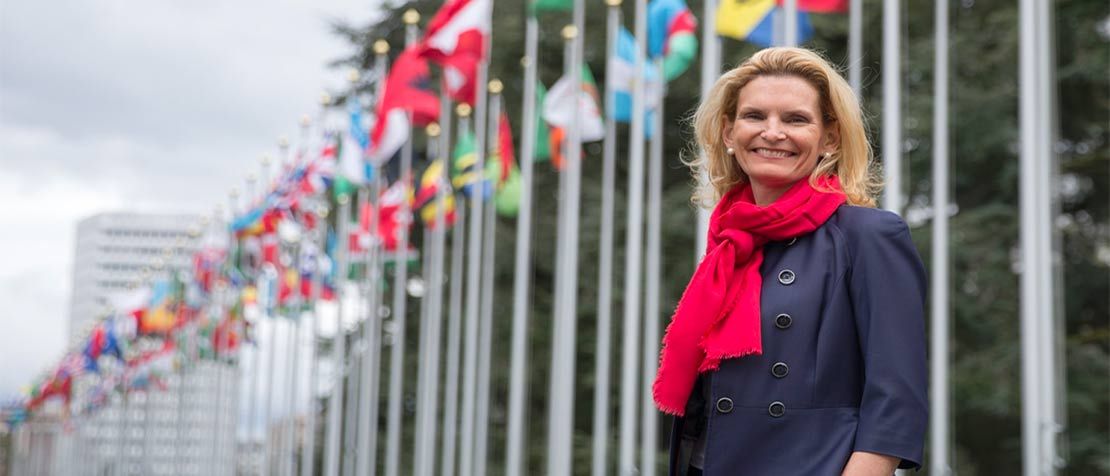
Interviews with ITU’s next top elected officials: Doreen Bodgan-Martin
The mission of the International Telecommunication Union has never been more important, says Doreen Bogdan-Martin of the United States, Director-elect of ITU’s Telecommunication Development Bureau (BDT), and the very first woman in the history of the organization to be elected to serve on ITU’s top leadership team.
At the ITU Plenipotentiary Conference 2018, Doreen Bogdan-Martin spoke about her vision for the Union and how to bring more women to the ICT sector.
“We have half the world’s population that’s not connected and … if we don’t connect the other half … it will be almost impossible to achieve the Sustainable Development Goals,” she said.
She emphasized that ICTs have a key role in enabling each of the 17 SDGs, such as poverty reduction, education for all, access to healthcare, and smart sustainable cities.
WATCH THE VIDEO:
Once she begins in her role as Director of BDT on 1 January 2019, Doreen Bodgan-Martin intends to focus on the following 5 priorities: brokering partnerships, strengthening ITU’s regional presence, building the capacity of ITU members, doing more with ICT data, and improving the efficiency of the organization.
“As you may know we have a rather small budget … and we have no less than 30 regional initiatives that we need to implement,” she said. “We’re never going to be able to do that unless we really are able to broker these partnerships.”
She also said: “We need to empower our regional offices and ensure that we’re making them more relevant for the countries that they’re serving.”
RELATED: ITU’s approach to bridging the digital gender divide
When asked about being the first woman to serve as a top ITU elected official, she said: “Well I’m thrilled, absolutely over the moon! I think we are making history. I think that we will see many more women participating in ITU activities in the future.”
She added: “we can’t have the benefits of ICTs unless we do close the digital gender gap and I think this is one step forward in terms of closing that gap.”
To help bridge the global digital gender divide, ITU leads International Girls in ICT Day, a global effort to encourage girls and young women to consider studies and careers in ICT.
ITU also co-founded the EQUALS Global Partnership. Ms. Bogdan-Martin explained that EQUALS has “some 60 government, private-sector and civil society partners and we’re focusing on access, skills, and leadership, with a cross-cutting research track. I believe our efforts are starting to make a difference.”
About four in ten delegates at the 2018 Plenipotentiary Conference are women. “I think we’re making progress — four out of ten is almost there. But I think we could do a little bit more … to encourage Member States to include women on their delegations and maybe more importantly to encourage them to take the microphone.”

